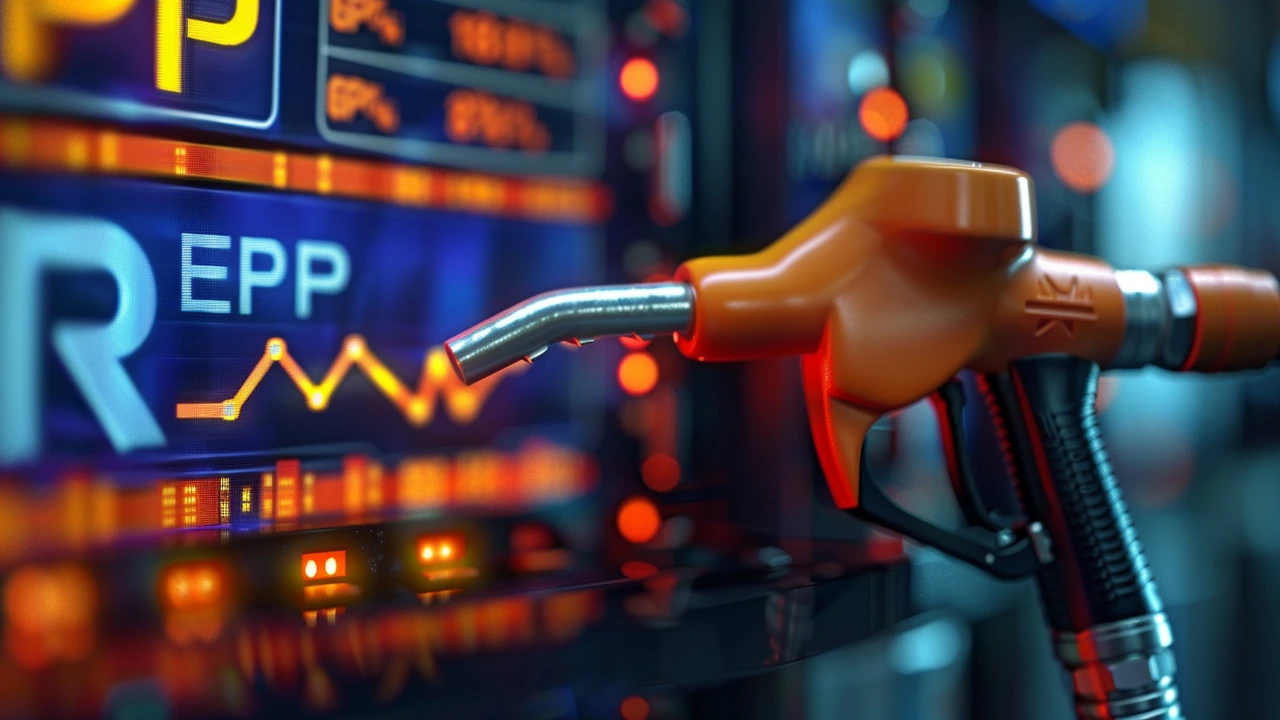The Energy and Petroleum Regulatory Authority (Epra) has recently made a slight adjustment to fuel prices, lowering them by one shilling. This change is part of Epra's regular price review process, which scrutinizes and sets fuel prices in response to global oil market trends and local economic factors. The intention behind the price cut is to offer some relief to motorists and businesses that have been grappling with high operational costs due to previously elevated fuel prices.
Understanding Epra's Role and Price Setting Mechanism
Epra plays a critical role in the energy sector by ensuring that the prices of petroleum products are fair and reflect the economic realities in Kenya and the global market. The authority examines several components such as the cost of importing crude oil, refining costs, distribution charges, and significant factors like exchange rate fluctuations. Additionally, Epra's decisions consider governmental taxes and levies on fuel, which constitute a substantial portion of the final price consumers pay at the pump.
Implications of the Price Reduction
The reduction of one shilling might seem minor, but its impact can be significant over time. For individual motorists, the savings might not be substantial per tank fill; however, cumulatively, it could mean more disposable income in the pockets of consumers. For businesses, particularly those in transport and logistics, a decrease in fuel costs, even by a small margin, could lead to reduced operational expenses and potentially lower prices for goods and services.
Economic and Social Impacts
This price adjustment comes at a time when the economy is navigating through recovery phases post various global challenges including pandemics and geopolitical tensions. By reducing the fuel prices, Epra is not only trying to stimulate economic growth by lowering transportation costs but also aims to support the livelihood of the average citizen. Cheaper fuel could mean cheaper public transport fares and reduced costs of goods, fostering a more affordable living situation for many.
Future Outlook on Fuel Prices
While this decrease is welcomed, it is essential to note that fuel prices are highly volatile and subject to numerous influencing factors. The global oil market remains unpredictable, with prices influenced by geopolitical events, changes in supply and demand, and other economic factors. Kenyans, therefore, should remain cautious and prepared for possible fluctuations in fuel prices in future Epra reviews.
In conclusion, while the immediate effects of Epra's decision to reduce fuel prices by one shilling are limited, the long-term benefits and signals it sends about regulatory commitments to fair pricing can have broader positive effects on the economy. Stakeholders across various sectors should continue to monitor these developments closely as they will have direct implications on operational costs and should plan accordingly to leverage any potential economic opportunities that arise from such regulatory changes.







MD Imran Ansari
May 14, 2024 AT 18:59Epra’s modest one‑shilling reduction might look like a drop in the ocean, but its ripple effects can be surprisingly broad. 😊 Firstly, the cut eases the immediate cash‑flow pressure on daily commuters, meaning more frequent top‑ups without the pinch. Secondly, transport firms, especially those handling bulk freight, can shave off cumulative costs that translate into slightly lower delivery charges. Thirdly, lower fuel expenses can nudge up disposable income, allowing households to allocate funds toward nutrition, education, or even modest savings. Fourthly, the move signals regulatory responsiveness, which can bolster investor confidence in the Kenyan energy sector. Fifthly, by adjusting the price floor, Epra indirectly influences the tax revenue stream-though the loss is nominal, it may be offset by stimulated economic activity. Sixthly, the reduction could temper inflationary pressures, as fuel is a core component of the consumer price index. Seventhly, it may encourage a modest uptick in public transport usage, as operators pass savings onto passengers. Eighthly, smaller enterprises that rely on diesel generators may see a dip in operational overheads, fostering a more competitive market. Ninthly, this adjustment provides a data point for future policy calibrations, helping analysts model price elasticity more accurately. Tenthly, it showcases the importance of continuous monitoring of global oil markets, reminding stakeholders that volatility is the norm. Eleventhly, consumers may develop higher expectations for price stability, prompting further advocacy for transparent pricing mechanisms. Twelfthly, the move could inspire neighboring countries to reassess their own fuel pricing strategies, potentially fostering regional cooperation. Thirteenthly, by marginally lowering costs, Epra inadvertently supports environmental goals, as cheaper fuel can reduce the incentive for illegal fuel adulteration. Fourteenthly, the psychological boost of any price drop can improve public sentiment, which is a subtle yet valuable asset for any government. Fifteenthly, the long‑term benefit lies in establishing a precedent that regulatory bodies are willing to act proactively, which can catalyze broader economic resilience. 🌟
walaal sanjay
May 16, 2024 AT 12:39What a *revolutionary* move!!! The government finally *listened*!!! One shilling? That's it? 😡 This is a *mockery* of our struggles!!! They think a tiny tweak will solve everything???
Umesh Nair
May 18, 2024 AT 06:19so they think a single shilling is gonna change anything? lol, real ly? it's just a *picket* in the grand scheme. i mean, who even cares about a *tiny* dip when the whole market is roller‑coasting??
kishore varma
May 19, 2024 AT 23:59Hmm, interesting tweak. 🤔 Even a small dip can add up over the months, especially for rideshare drivers. 🌈 Let’s see if the savings actually show up at the pump.
Kashish Narula
May 21, 2024 AT 17:39It’s great to see any effort toward easing the burden, even if modest. Let’s keep the conversation constructive and hope for more meaningful adjustments soon.
smaily PAtel
May 23, 2024 AT 11:19While the excitement is palpable, let’s not forget the underlying mechanics: import costs, refining margins, distribution fees, and taxes-all of which dominate the final price. A one‑shilling cut, though symbolically positive, barely scratches the surface of the cost structure; the net consumer benefit remains marginal at best.
Hemanth NM
May 25, 2024 AT 04:59Short and sweet: every shilling counts.
rin amr
May 26, 2024 AT 22:39While some dismiss this as a token gesture, it’s a strategic signal that regulatory bodies are attuned to market pressures. By nudging prices ever so slightly, Epra demonstrates a willingness to balance fiscal responsibility with consumer welfare-an approach that, if sustained, could foster incremental stability in the sector.
Jai Bhole
May 28, 2024 AT 16:19Patriots, wake up! This tiny tweak is just a smokescreen while foreign oil giants dictate our destiny. Real freedom comes when we break away from dependence and build indigenous energy-anything less is a compromise of our sovereignty.
rama cs
May 30, 2024 AT 09:59From a macro‑economic perspective, the marginal reduction aligns with the concept of price elasticity in a low‑elastic demand environment. However, the incremental consumer surplus generated remains statistically insignificant within the broader CPI framework, suggesting a limited impact on aggregate welfare.
Monika Kühn
June 1, 2024 AT 03:39Oh, brilliant-another micro‑adjustment to keep us all warm and fuzzy. Because nothing screams "effective policy" like a one‑shilling drop that barely nudges the needle.
Surya Prakash
June 2, 2024 AT 21:19We must prioritize ethics over price.
Sandeep KNS
June 4, 2024 AT 14:59Indeed, what a monumental shift-one shilling less per litre, surely a watershed moment in fiscal engineering.
Mayur Sutar
June 6, 2024 AT 08:39Let’s stay hopeful! Even tiny savings can spark bigger opportunities if we channel them wisely. Keep an eye on the numbers, and maybe the next review will bring more good news.